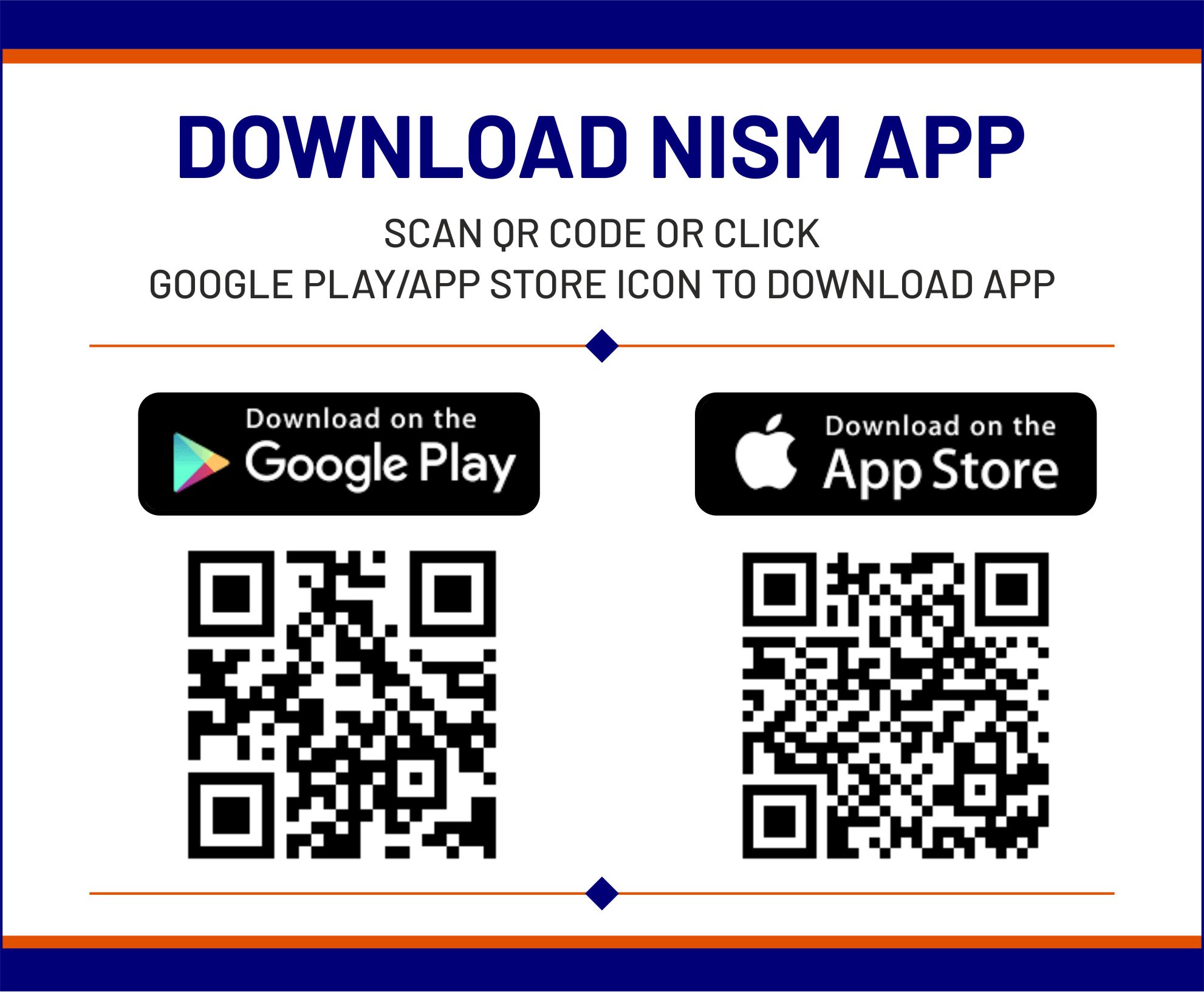NISM-Series-II-B: Registrars to an Issue and Share Transfer Agents – Mutual Fund Certification Examination
Curriculum
I: Introduction to Securities
- Introduction to Equity and Debt
- Features of Equity Capital and Benefits to Equity Investors
- Features of Debt Capital and Benefits to Debt Investors
- Hybrid Structures
II: Characteristics of Equity Shares
- Investors in Equity Shares
- Rights of a Shareholder
- Risks in Equity Investing
- Equity Terminology
- Corporate Actions
- Preference Shares
- Rights Issue of Shares
- Preferential Issue
III: Characteristics of Debt Securities
- Features of a Debt Security
- Market Value of a Debt security
- Yield from Debt Instruments
- Types of Debt Securities
- Classification of Debt Market
- Credit Rating
- Money Market Instruments
IV: Characteristics of Other Securities
- Warrants
- Convertible Debentures
- Depository Receipts
- Foreign Currency Convertible Bond (FCCB)
- Exchange Traded Funds (ETFs) and Index Funds
- Investment Trusts
V: SEBI – Role and Regulations
- Securities and Exchange Board of India Act, 1992 and Role of SEBI
- SEBI Regulations specifically aimed at Investor Protection
- Investor Education and Protection Fund (IEPF)
- SEBI Regulations for Registrars and Transfer Agents
VI: Basics of Registrars and Transfer Agents
- Introduction
- Investor Service Centre (ISC) and Official Point of Acceptance (OPA)
- Qualified Registrar and Transfer Agents (QRTAs)
- RTA and Depository Interface
- Industry Overview
VII: Registrar and Transfer Agents Regulations
- Guidelines under SEBI (LODR) Regulations 2015
- SEBI (Registrars to an Issue and Share Transfer Agents) Regulations 1993
- Enhanced Monitoring Guidelines for QRTAs
- Cyber Security and Cyber Resilience Framework for QRTAs
- Systems Audit Framework
- Segregated Portfolios
- Ultimate Beneficial Owner
VIII: Basics of Mutual Funds
- Introduction to Mutual Funds
- Advantages of Mutual Funds
- Open Ended and Close Ended Mutual Funds
- Assets under Management (AUM)
- Total Expense Ratio
- Net Assets
IX: Mutual Fund Structure and Constituents
- Sponsor
- Trustees
- Asset Management Company (AMC)
- Custodians
- Regulation of Mutual Funds
- Constituents and Service Providers
X: Mutual Fund Products
- Product Differentiation
- Types of Mutual Fund Plans
- Features of Mutual Fund Products
- Product Labelling
- Strategy-based Classification
- Product Creation Process
- Scheme related Documents
- Types of Mutual Funds
XI: Operational Concepts of Mutual Funds
- New Fund Offer (NFO)
- On-going/ Continuous Offer
- Computation of Net Asset Value (NAV)
- Applicable NAV
- Time Stamping and Risk Control
- Cut Off Time
- Investing in Mutual Funds through Stock Exchanges
- Holding Units in Dematerialized Form
- Role of RTA in Tax Computation
- Reporting Requirements to Central Board of Direct Taxes (CBDT)
XII: Investors in Mutual Funds
- Individual Investors
- Institutional Investors
- Investor Information and Documentations
- Know Your Customer (KYC) Norms
- Power of Attorney
- Nomination
- FATCA and CRS Compliance
XIII: Banking Operations in Mutual Funds
- Payment Mechanism
- Bank Accounts maintained by Mutual Funds
- Electronic Clearing Mechanisms
- Role of Registrars and Transfer Agents (RTAs) in Banking Operations
XIV: Financial Transactions
- Application Form Vs Transaction Slip
- Purchase Transactions
- Redemptions
- Account Statements for Investments
- Switch
- Systematic Transactions
- Turn-around-times for various Financial Transactions with Mutual Funds
- Role of RTA in Commission Payment
XV: Non-Financial Transactions
- Change in Name (Individual Investors)
- Change of Address
- Change of Bank Details
- Change/ Updation of Other Details
- Minor becoming Major
- Registration of Power of Attorney (PoA)
- Registration of Nominee
- Pledge and Lien Marking
- Transmission of Units
- Change in Option
- Change in Corporate Name or Status
- Investor Grievance Redressal
- Value Added services by RTAs

